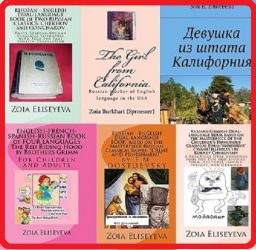Google Translation Today – September 16, 2021
I translated today a paragraph from English to Russian language with Google Translation. Here are my comments. Who am I? I am a philologist, educator, instructor of languages and my teaching work and studying languages are both my occupation and my hobby. My teaching experience is about 30 years now. When I can find translations I will do translations too. I already mentioned recently in my articles or comments that Google Translation has improved greatly in the last few years. However, today I want to mention a few mistakes of Google Translation that were made by computer: the mistakes that only a language professional may correct, or sometimes only a native speaker.
Also, the paragraph I have been translating here is written by my student of Russian language, and I find it very interesting in itself, as a comment from a native speaker of English about the difficulties of the Russian vocal stress.
The mistakes that were made by computerized translation were of the following nature:
1) The meaning of a word that was used in the end of translation was wrong, although the topic of the paragraph had been clearly defined from the beginning. The conclusion: the computer does not have the logical ability to finish the translation of the short paragraph keeping to the topic. Suddenly, out of logic, computer used a different meaning of the word. In this case the topic was all about the vocal stress, yet in the end computer suddenly translates the word as “psychological stress”.
We all know that computer confuses the different meanings of the homographs, however, I am pointing out here, that computer of today still does not have a logical memory of things, even in a very short text sample.
2) The second of a few mistakes of this translation was about the absence of some knowledge that maybe only a native speaker of Russian could detect. I am talking about the word “peasant”. The fact is that we generally do not use in Russian culture the word “peasant”. We may use it for history or it is widely used in Russian classical literature (written in XIX century), but the word is quite uncommon for today’s conversational speech. The common usage of the word “peasant” (крестьянин) belongs to tsarist times of Russia – before and during the Russian Socialist Revolution of 1917. After that the so called “kolkhozi” (collective farms) were created, so what is a common word for Russian speaking people – it is “kolhoznik” for a man and “kolhoznitsa” for a woman. I found it interesting that computer does not know history and important language tendencies in a certain culture and it uses the general vocabulary.
Otherwise, but a few inconsistencies, the computerized translation of today (September 16, 2021) is not bad at all. I remember, years ago, one of my American friends was translating some document by Google translation from English to Russian, and that translation was very bad.
We can see the improvement in computerized translations, however we also can see how far we are from not having the necessity of a good translator or philologist when it comes to a good quality translation or editing. (This topic is close to the AI topic too.)
Thursday, September 16, 2021
CA, USA
Zoia Eliseyeva
zoiaeliseyeva2.com
UTube – zoiacalifornia
Note:
The paragraph referred to in this article is this:
The Cyrillic alphabet expresses the written Russian language very well. But when I read a passage of Russian to my teacher, I find it difficult, in words of several syllables, to know on which syllable the stress falls. I make the same mistakes again and again. My excellent teacher Zoia tactfully tries to conceal her impatience, and she corrects me as often as necessary. Which syllable to stress is very important in Russian. The entire meaning of a word can depend on stress location. Misplaced stress makes one sound like an ignorant peasant or “redneck”.
Кириллица очень хорошо передает письменный русский язык. Но когда я читаю отрывок по-русски своему учителю, мне трудно в словах, состоящих из нескольких слогов, понять, на какой слог падает ударение. Я снова и снова делаю одни и те же ошибки. Моя прекрасная учительница Зоя тактично пытается скрыть свое нетерпение и поправляет меня столько сколько требуется. На какой слог делать ударение – очень важно в русском языке. Значение слова может зависеть от места ударения. Неправильное ударение в словах может сделать речь ничего не подозревающего студента подобной речи невежественного колхозника или «деревенщины».

